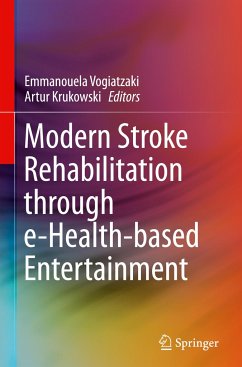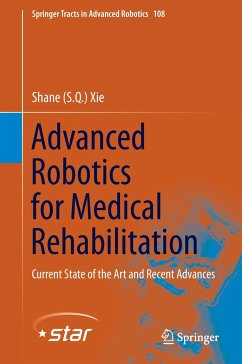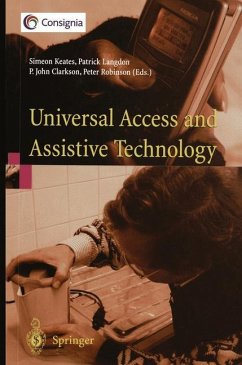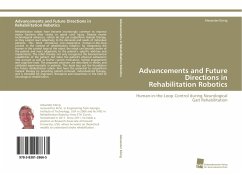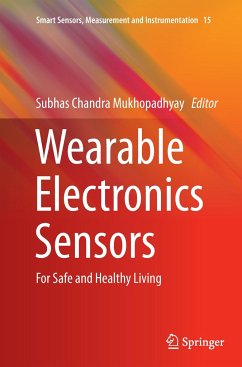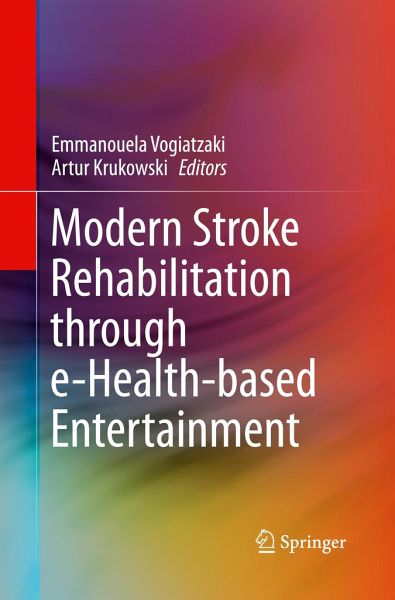
Modern Stroke Rehabilitation through e-Health-based Entertainment
Versandkostenfrei!
Versandfertig in 6-10 Tagen
91,99 €
inkl. MwSt.

PAYBACK Punkte
46 °P sammeln!
This book describes a new, "e-Health" approach to stroke rehabilitation. The authors propose an alternative approach that combines state of the art ICT technologies ranging from Augmented and Virtual Reality gaming environments to latest advances in immersive user interfaces for delivering a mixed-reality training platform, along with advanced embedded micro sensing and computing devices exhibiting enhanced power autonomy by using the latest Bluetooth Smart communication interfaces and energy saving approaches. These technologies are integrated under the umbrella of an online Personal Health R...
This book describes a new, "e-Health" approach to stroke rehabilitation. The authors propose an alternative approach that combines state of the art ICT technologies ranging from Augmented and Virtual Reality gaming environments to latest advances in immersive user interfaces for delivering a mixed-reality training platform, along with advanced embedded micro sensing and computing devices exhibiting enhanced power autonomy by using the latest Bluetooth Smart communication interfaces and energy saving approaches. These technologies are integrated under the umbrella of an online Personal Health Record (PHR) services allowing for delivery of personalized, patient-centric medical services whether at home, in a clinic or on the move.
Describes innovative ways for achieving mixed-reality gaming environments;Enhances immersive experience by combining virtual projections with user interfaces based on body motion analysis;Offers cost-effective body motion capture by hybridizing wearable sensor data;Utilizes energy-efficient micro-embedded sensors for wearable physiological and sensing and activity monitoring applications;Includes innovative, power autonomous sensing using Body Area Networks;Describes the prototype of the portable, integrated rehabilitation training solution.
Describes innovative ways for achieving mixed-reality gaming environments;Enhances immersive experience by combining virtual projections with user interfaces based on body motion analysis;Offers cost-effective body motion capture by hybridizing wearable sensor data;Utilizes energy-efficient micro-embedded sensors for wearable physiological and sensing and activity monitoring applications;Includes innovative, power autonomous sensing using Body Area Networks;Describes the prototype of the portable, integrated rehabilitation training solution.



